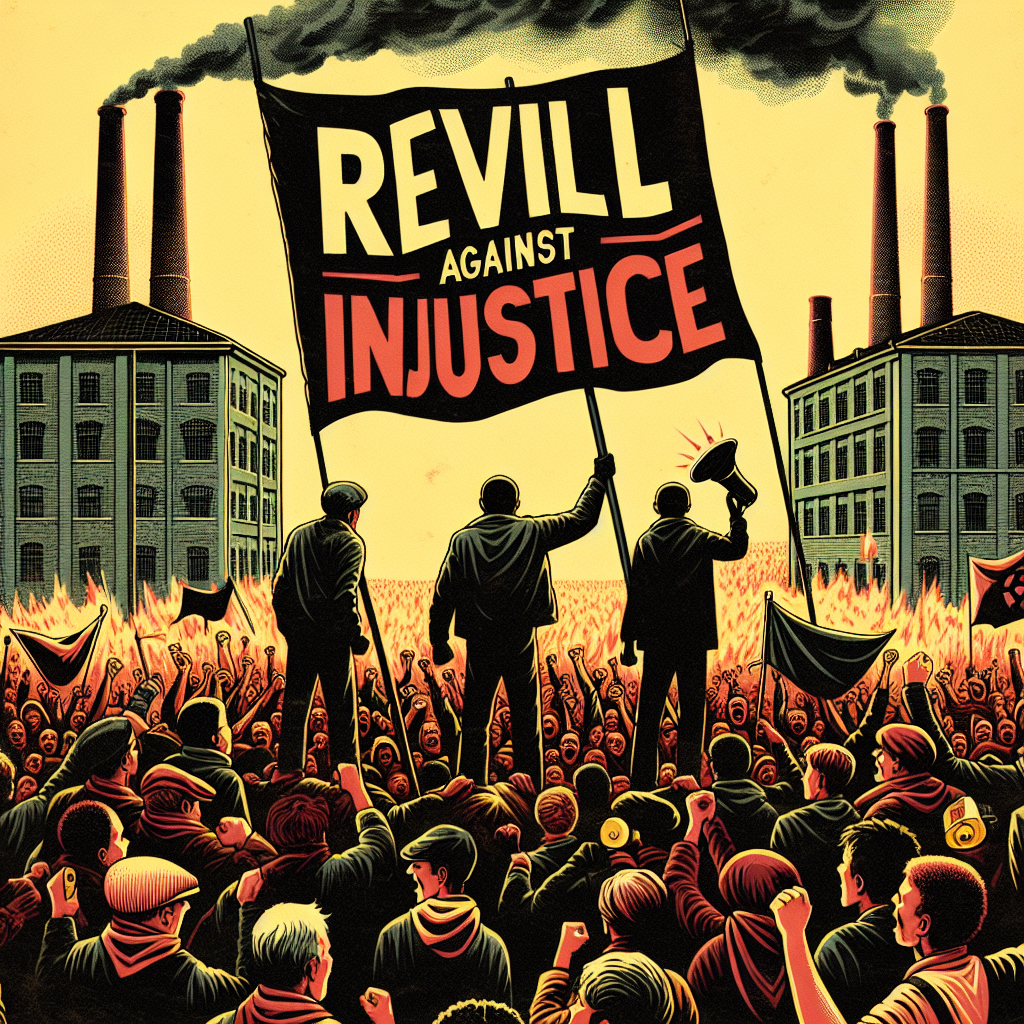Deskripsi meta tentang menentang ketidakadilan: Kasus-kasus pemberontakan sosial – Mengungkap perlawanan terhadap ketidakadilan melalui kasus-kasus pemberontakan sosial.
Menentang Ketidakadilan: Kasus-Kasus Pemberontakan Sosial
-
Table of Contents
- Introduction
- The Roots of Social Injustice
- Colonial Legacy
- Authoritarian Rule
- Economic Disparities
- Notable Cases of Social Rebellion
- The Indonesian National Revolution
- The 1998 Reformasi Movement
- The Papuan Independence Movement
- The Agrarian Reform Movement
- The Impacts of Social Rebellion
- Political Transformation
- Increased Awareness and Mobilization
- Violence and Repression
- Conclusion
Introduction

Indonesia, like many other countries, has a long history of social injustices that have led to various forms of social rebellion. These rebellions, often driven by a sense of inequality and oppression, have played a significant role in shaping the nation’s history and pushing for change. In this article, we will explore some notable cases of social rebellion in Indonesia and examine the underlying causes and impacts of these movements.
The Roots of Social Injustice
Before delving into specific cases of social rebellion, it is crucial to understand the root causes of social injustice in Indonesia. The country’s history is marked by colonization, authoritarian rule, and economic disparities, all of which have contributed to the marginalization of certain groups within society.
Colonial Legacy
Indonesia was colonized by various European powers for centuries, with the Dutch East Indies Company establishing control in the 17th century. The colonial period was characterized by exploitation of natural resources, forced labor, and cultural suppression. These practices laid the foundation for social inequalities that persist to this day.
Authoritarian Rule
Following independence from colonial rule, Indonesia experienced a series of authoritarian regimes that further exacerbated social injustices. The New Order regime under President Suharto, which lasted from 1967 to 1998, was particularly notorious for its suppression of political dissent and widespread corruption.
Economic Disparities
Indonesia’s rapid economic growth in recent decades has not been evenly distributed among its population. The country’s wealth gap has widened, with a small elite benefiting from economic development while many others struggle to meet their basic needs. This economic disparity has fueled feelings of injustice and inequality.
Notable Cases of Social Rebellion
The Indonesian National Revolution
The Indonesian National Revolution, which took place from 1945 to 1949, was a significant social rebellion against Dutch colonial rule. The revolution was driven by a desire for independence and an end to colonial exploitation. It involved various forms of resistance, including armed struggle, civil disobedience, and diplomatic efforts.
The 1998 Reformasi Movement
The Reformasi movement in 1998 marked a turning point in Indonesia’s history. It was a series of mass protests and demonstrations that led to the downfall of President Suharto and the end of the New Order regime. The movement was fueled by widespread discontent with corruption, economic inequality, and political repression.
The Papuan Independence Movement
The Papuan independence movement is an ongoing social rebellion in the province of Papua, which has been seeking independence from Indonesia since the 1960s. The movement is driven by a sense of cultural and political marginalization, as well as grievances over resource exploitation and human rights abuses.
The Agrarian Reform Movement
The agrarian reform movement in Indonesia aims to address the unequal distribution of land and promote the rights of farmers and rural communities. It advocates for land redistribution, access to resources, and fair agricultural policies. The movement has gained traction in recent years, with various organizations and communities actively pushing for change.
The Impacts of Social Rebellion
Social rebellion in Indonesia has had significant impacts on the nation’s political, social, and cultural landscape. These movements have brought about both positive and negative changes, shaping the country’s trajectory in various ways.
Political Transformation
Social rebellions have often led to political transformations, such as the establishment of democratic systems and the removal of authoritarian regimes. The Reformasi movement, for example, paved the way for a more open and democratic Indonesia, with greater respect for human rights and political freedoms.
Increased Awareness and Mobilization
Social rebellions have played a crucial role in raising awareness about social injustices and mobilizing communities to demand change. These movements have empowered marginalized groups and given them a platform to voice their grievances, leading to increased solidarity and collective action.
Violence and Repression
While social rebellions are often driven by a desire for justice and equality, they can also lead to violence and repression. The Indonesian National Revolution, for instance, resulted in a protracted armed conflict that claimed many lives. The response from authorities to some social rebellions has been marked by violence and human rights abuses.
Conclusion
Social rebellion in Indonesia has been a response to deep-rooted social injustices stemming from the country’s colonial past, authoritarian rule, and economic disparities. These rebellions have played a crucial role in shaping the nation’s history and pushing for change. From the Indonesian National Revolution to the Papuan independence movement, these movements have brought about political transformations, increased awareness, and mobilization. However, they have also been marred by violence and repression. It is essential for Indonesia to address the underlying causes of social injustice and work towards a more equitable and inclusive society to prevent future rebellions and ensure a brighter future for all its citizens.







